.
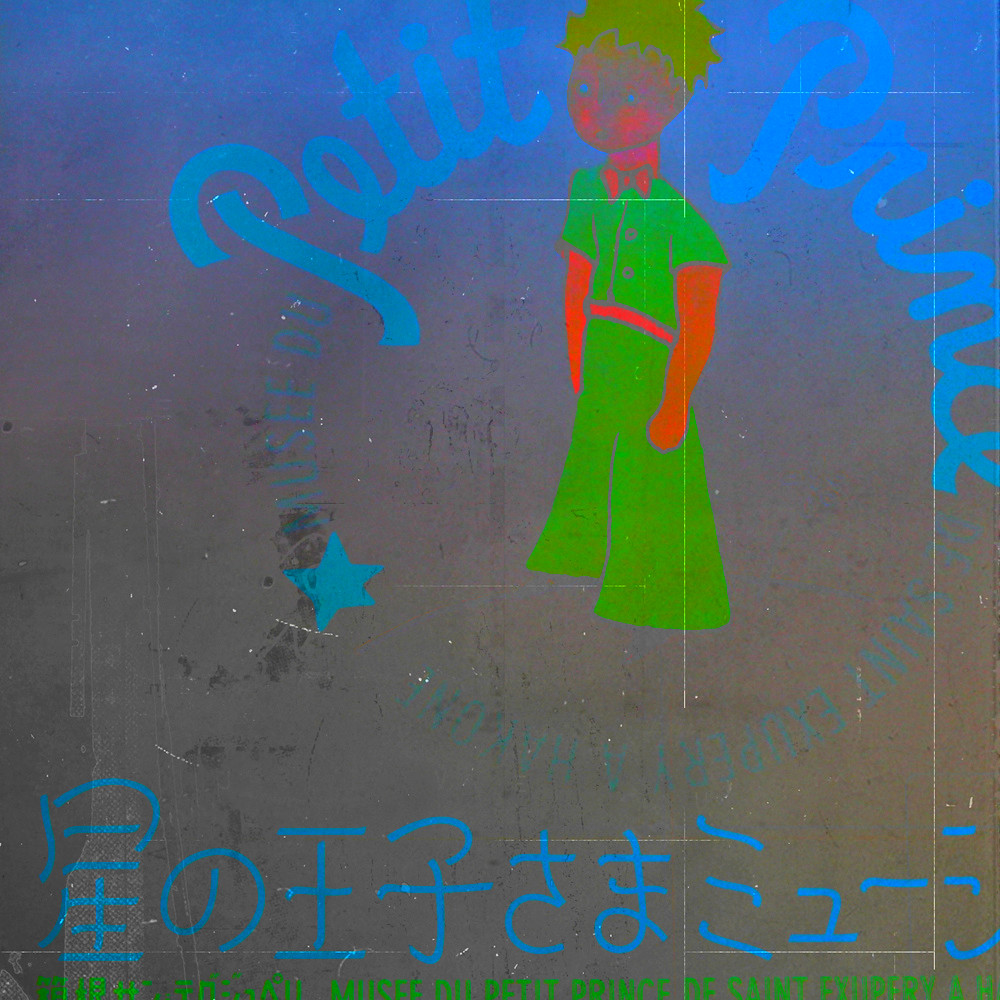
I should tolerate the closeness of 2-3 caterpillars, if I want to get to to know butterflies: textured photo by Marie Wintzer, 26 November 2011
It was then that the fox appeared.
"Good morning," said the fox.
"Good morning," the little prince responded politely, although when he turned around he saw nothing.
"I am right here," the voice said, "under the apple tree."
"Who are you?" asked the little prince, and added, "You are very pretty to look at."
"I am a fox," said the fox.
"Come and play with me," proposed the little prince. "I am so unhappy."
"I cannot play with you," the fox said. "I am not tamed."
"Ah! Please excuse me," said the little prince.

But, after some thought, he added:
"What does that mean -- 'tame'?"
"You do not live here," said the fox. "What is it that you are looking for?"
"I am looking for men," said the little prince. "What does that mean -- 'tame'?"
"Men," said the fox. "They have guns, and they hunt. It is very disturbing. They also raise chickens. These are their only interests. Are you looking for chickens?"
"No," said the little prince. "I am looking for friends. What does that mean -- 'tame'?"
"It is an act too often neglected," said the fox. "It means to establish ties."
"'To establish ties'?"
"Just that," said the fox. "To me, you are still nothing more than a little boy who is just like a hundred thousand other little boys. And I have no need of you. And you, on your part, have no need of me. To you, I am nothing more than a fox like a hundred thousand other foxes. But if you tame me, then we shall need each other. To me, you will be unique in all the world. To you, I shall be unique in all the world..."
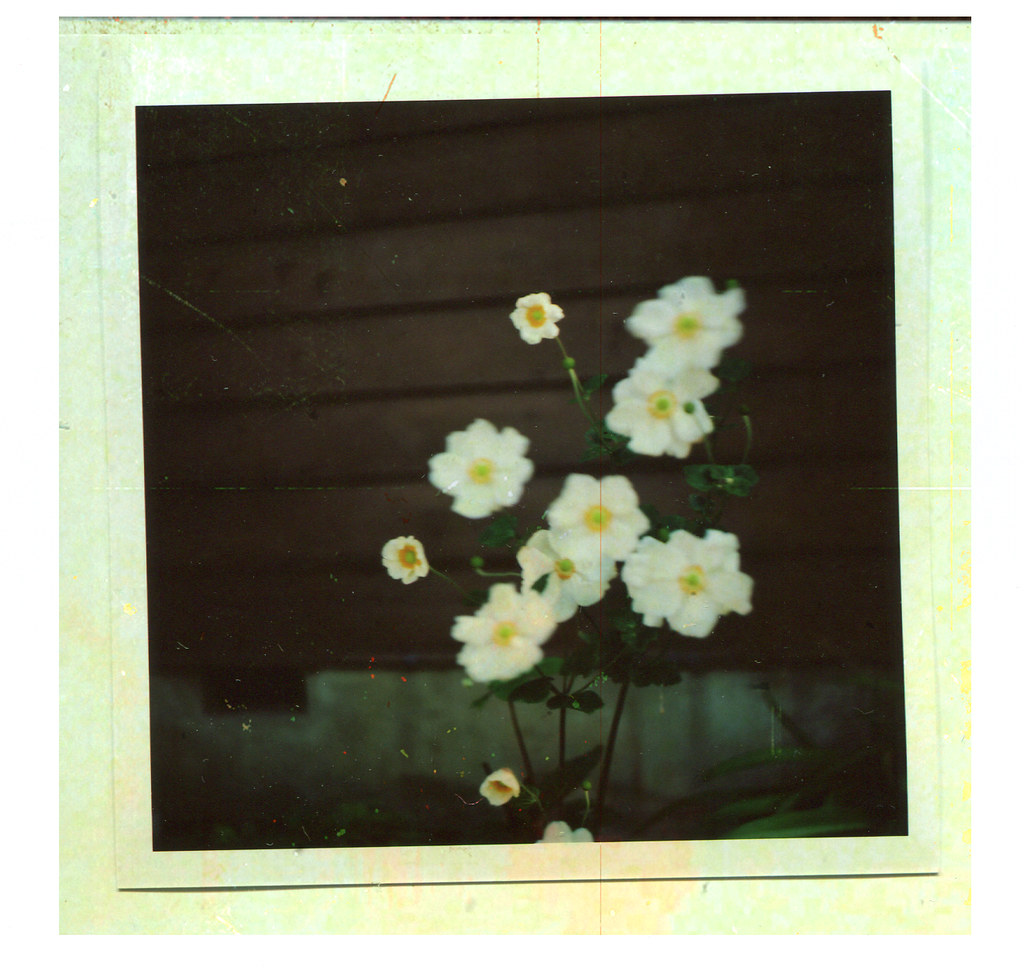
Il y a une fleur (Je commence à comprendre, dit le petit prince. Il y a une fleur... je crois qu'elle m'a apprivoisé... C'est possible, dit le renard. On voit sur la Terre toutes sortes de choses...): textured photo by Marie Wintzer, 15 December 2011
"I am beginning to understand," said the little prince. "There is a flower... I think that she has tamed me..."
"It is possible," said the fox. "On the Earth one sees all sorts of things."
"Oh, but this is not on the Earth!" said the little prince.
The fox seemed perplexed, and very curious.
"On another planet?"
"Yes."

Tarfaya: photo by dimworld (Dimitri), 12 December 2007
"Are there hunters on this planet?"
"No."
"Ah, that is interesting! Are there chickens?"
"No."
"Nothing is perfect," sighed the fox.
But he came back to his idea.
"My life is very monotonous," the fox said. "I hunt chickens; men hunt me. All the chickens are just alike, and all the men are just alike. And, in consequence, I am a little bored. But if you tame me, it will be as if the sun came to shine on my life. I shall know the sound of a step that will be different from all the others. Other steps send me hurrying back underneath the ground. Yours will call me, like music, out of my burrow. And then look: you see the grain-fields down yonder? I do not eat bread. Wheat is of no use to me. The wheat fields have nothing to say to me. And that is sad. But you have hair that is the colour of gold. Think how wonderful that will be when you have tamed me! The grain, which is also golden, will bring me back the thought of you. And I shall love to listen to the wind in the wheat..."
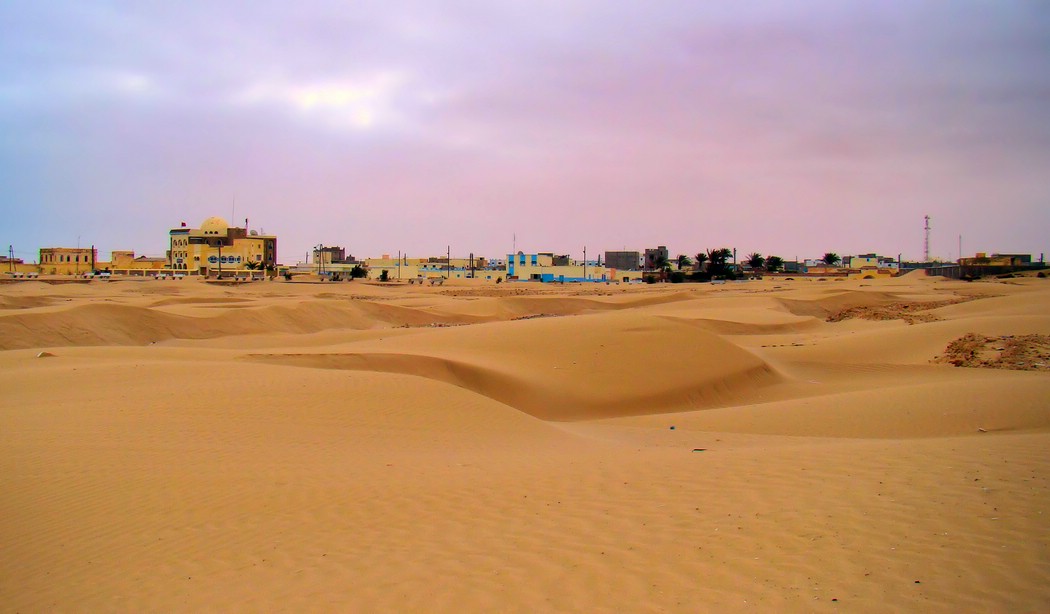
Tarfaya, on the Atlantic coast of Morocco: photo by Bjørn Christian Tørrissen, April 2011
The fox gazed at the little prince, for a long time.
"Please -- tame me!" he said.
"I want to, very much," the little prince replied. "But I have not much time. I have friends to discover, and a great many things to understand."

Blowing sand over the shoreline, Tarfaya, Morocco: photo by Bjørn Christian Tørrissen, April 2011
"One only understands the things that one tames," said the fox. "Men have no more time to understand anything. They buy things all ready made at the shops. But there is no shop anywhere where one can buy friendship, and so men have no friends any more. If you want a friend, tame me..."
"What must I do, to tame you?" asked the little prince.
"You must be very patient," replied the fox. "First you will sit down at a little distance from me -- like that -- in the grass. I shall look at you out of the corner of my eye, and you will say nothing. Words are the source of misunderstandings. But you will sit a little closer to me, every day..."

The next day the little prince came back.
"It would have been better to come back at the same hour," said the fox. "If, for example, you come at four o'clock in the afternoon, then at three o'clock I shall begin to be happy. I shall feel happier and happier as the hour advances. At four o'clock, I shall already be worrying and jumping about. I shall show you how happy I am! But if you come at just any time, I shall never know at what hour my heart is to be ready to greet you... One must observe the proper rites..."
"What is a rite?" asked the little prince.
"Those also are actions too often neglected," said the fox. "They are what make one day different from other days, one hour from other hours. There is a rite, for example, among my hunters. Every Thursday they dance with the village girls. So Thursday is a wonderful day for me! I can take a walk as far as the vineyards. But if the hunters danced at just any time, every day would be like every other day, and I should never have any vacation at all."
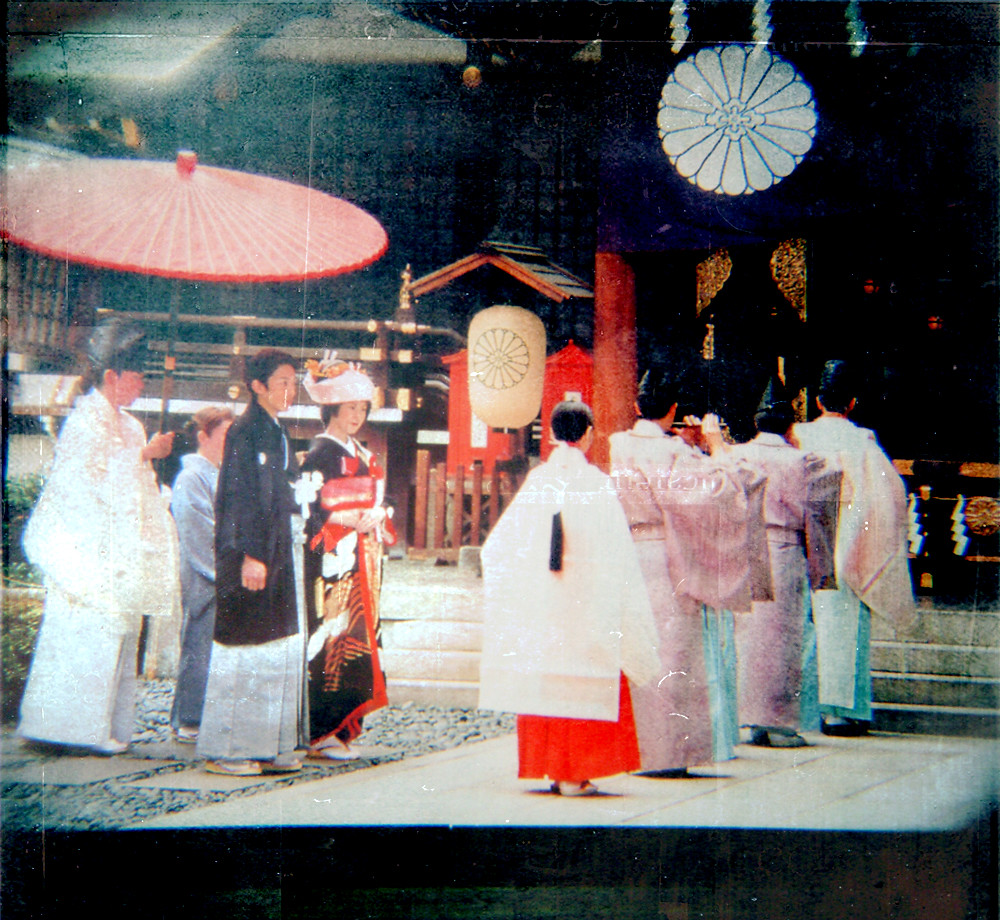
And when the hour of his departure grew near..."Ah," said the fox, "I shall cry."
"It is your own fault," said the little prince. "I never wished you any sort of harm; but you wanted me to tame you..."
-------
(Holga toy camera - texture): textured photo by Marie Wintzer, 22 October 2011
(Holga toy camera - texture): textured photo by Marie Wintzer, 22 October 2011
So the little prince tamed the fox. And when the hour of his departure drew near --
"Ah," said the fox, "I shall cry."
"It is your own fault," said the little prince. "I never wished you any sort of harm; but you wanted me to tame you..."
"Yes, that is so," said the fox.
"But now you are going to cry!" said the little prince.
"Yes, that is so," said the fox.
"Then it has done you no good at all!"
"It has done me good," said the fox, "because of the color of the wheat fields." And then he added:
"Go and look again at the roses. You will understand now that yours is unique in all the world. Then come back to say goodbye to me, and I will make you a present of a secret."
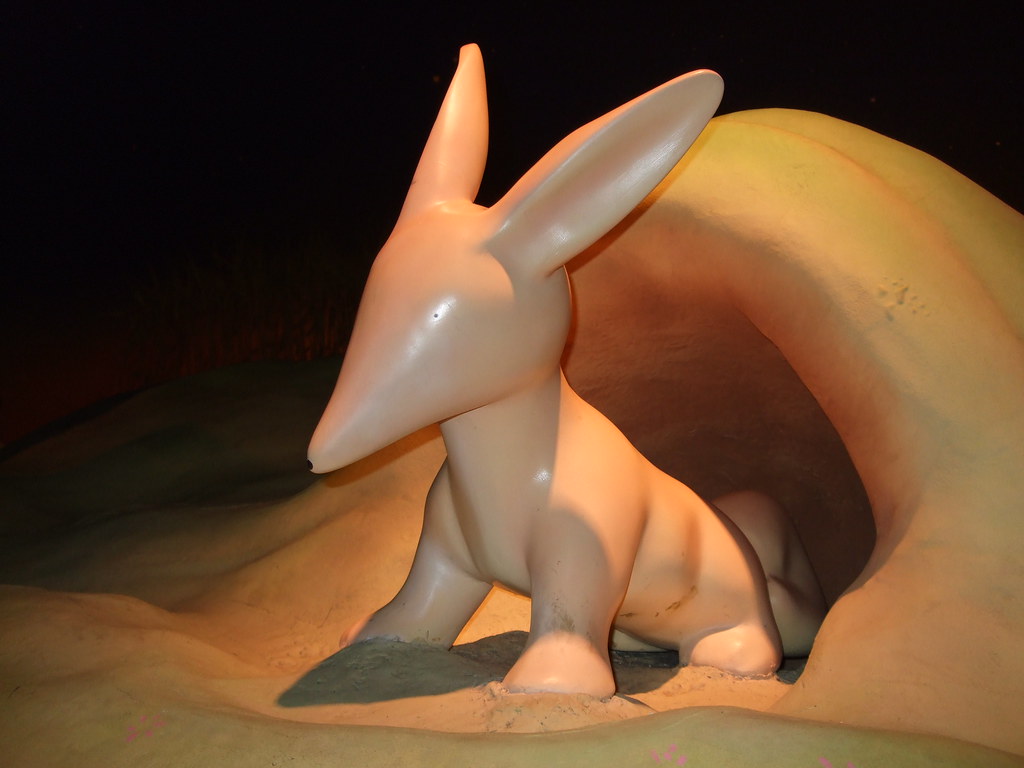
Le Renard (The Fox) at the Museum of The Little Prince, Hakone, Japan: photo by Arnaud Malon, 8 October 2007
The little prince went away, to look again at the roses.
"You are not at all like my rose," he said. "As yet you are nothing. No one has tamed you, and you have tamed no one. You are like my fox when I first knew him. He was only a fox like a hundred thousand other foxes. But I have made him my friend, and now he is unique in all the world."
And the roses were very much embarrassed.

Tarfaya: photo by dimworld (Dimitri), 12 December 2007
"You are beautiful, but you are empty," he went on. "One could not die for you. To be sure, an ordinary passerby would think that my rose looked just like you -- the rose that belongs to me. But in herself alone she is more important than all the hundreds of you other roses: because it is she that I have watered; because it is she that I have put under the glass globe; because it is she that I have sheltered behind the screen; because it is for her that I have killed the caterpillars (except the two or three that we saved to become butterflies); because it is she that I have listened to, when she grumbled, or boasted, or even sometimes when she said nothing. Because she is my rose."
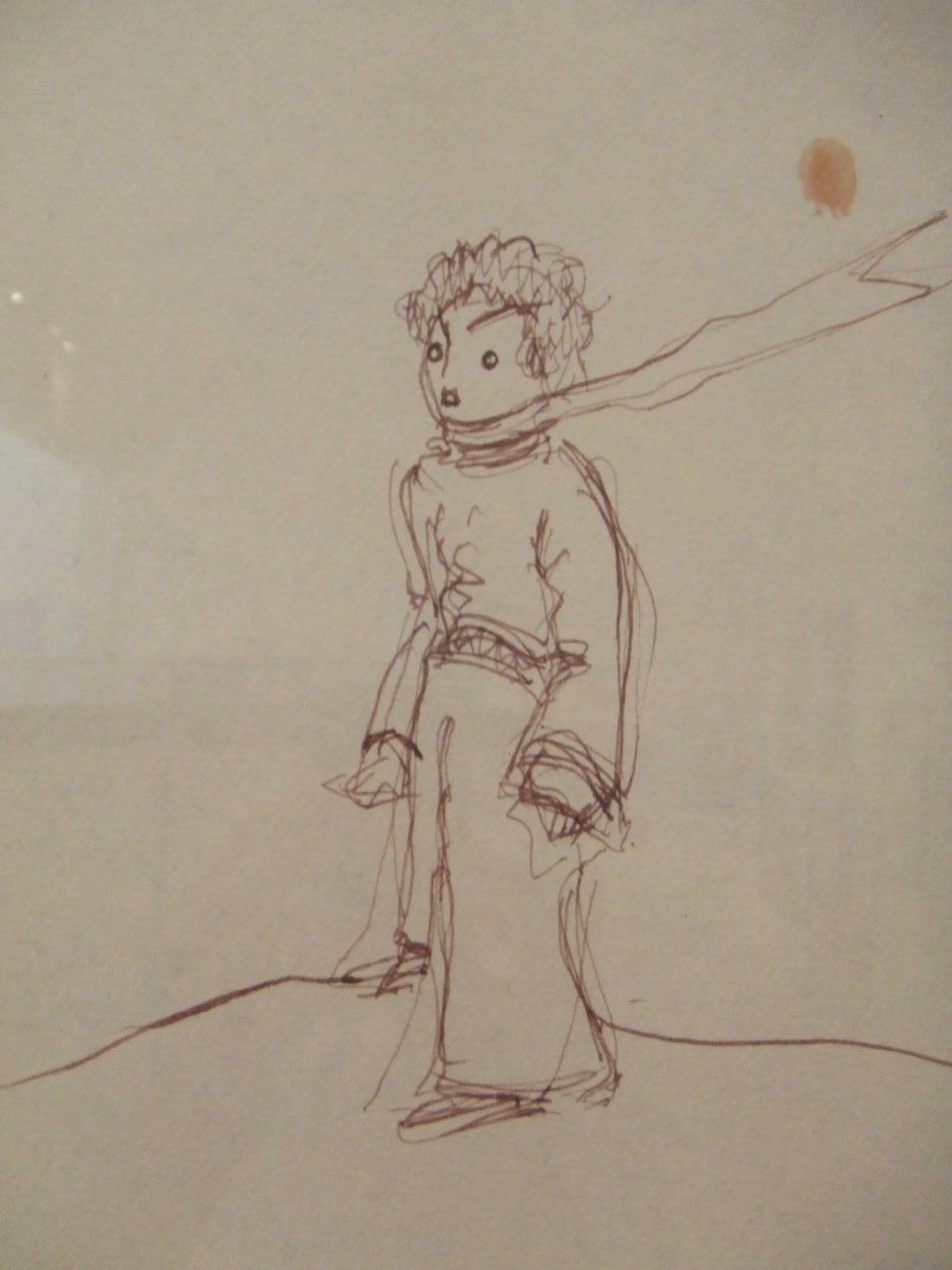
Tarfaya: image by dimworld (Dimitri), 12 December 2007
And he went back to meet the fox.
"Goodbye," he said.
"Goodbye," said the fox. "And now here is my secret, a very simple secret: It is only with the heart that one can see rightly; what is essential is invisible to the eye."
"What is essential is invisible to the eye," the little prince repeated, so that he would be sure to remember.
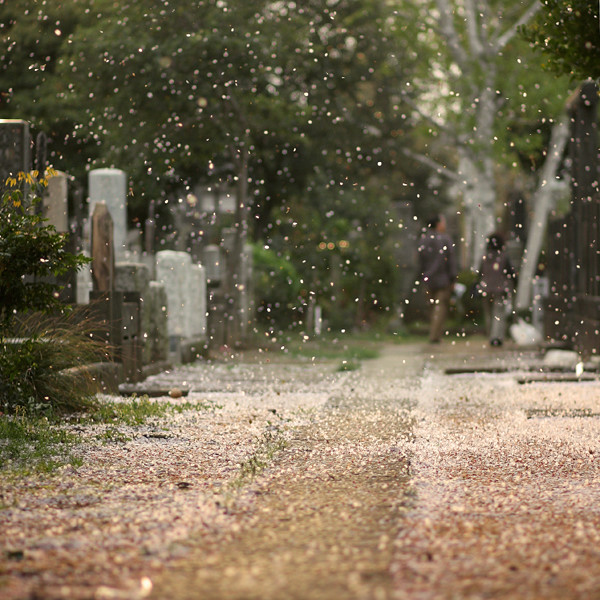
In another world: Sakura storm at Yanaka cemetery (Tokyo): photo by Marie Wintzer
"It is the time you have wasted for your rose that makes your rose so important."
"It is the time I have wasted for my rose --" said the little prince, so that he would be sure to remember.
"Men have forgotten this truth," said the fox. "But you must not forget it. You become responsible, forever, for what you have tamed. You are responsible for your rose..."
"I am responsible for my rose," the little prince repeated, so that he would be sure to remember.
*
Grandidier's Baobab (Adansonia grandidieri) near Morondava, Madagascar: photo by Bernard Gagnon, 14 March 2007
As each day passed I would learn, in our talk, something about the little prince's planet, his departure from it, his journey. The information would come very slowly, as it might chance to fall from his thoughts. It was in this way that I heard, on the third day, about the catastrophe of the baobabs.
This time, once more, I had the sheep to thank for it. For the little prince asked me abruptly -- as if seized by a grave doubt -- "It is true, isn't it, that sheep eat little bushes?"
"Yes, that is true."
"Ah! I am glad!"
I did not understand why it was so important that sheep should eat little bushes. But the little prince added:
"Then it follows that they also eat baobabs?"
I pointed out to the little prince that baobabs were not little bushes, but, on the contrary, trees as big as castles; and that even if he took a whole herd of elephants away with him, the herd would not eat up one single baobab.

The idea of the herd of elephants made the little prince laugh.
"We would have to put them one on top of the other," he said.

Family of African Bush Elephants (Loxodonta africana) taking a mud bath in Tsavo East National Park, Kenya: photo by Mgiganteus, 11 July 2007
But he made a wise comment:
"Before they grow so big, the baobabs start out by being little."
Avenue of the Baobabs. Grandidier's Baobabs (Adansonia grandidieri) near Morondava, Madgascar: photo by Bernard Gagnon, 14 March 2007
"That is strictly correct," I said. "But why do you want the sheep to eat the little baobabs?"
He answered me at once, "Oh, come, come!", as if he were speaking of something that was self-evident. And I was obliged to make a great mental effort to solve this problem, without any assistance.
Indeed, as I learned, there were on the planet where the little prince lived -- as on all planets -- good plants and bad plants. In consequence, there were good seeds from good plants, and bad seeds from bad plants. But seeds are invisible. They sleep deep in the heart of the earth's darkness, until some one among them is seized with the desire to awaken. Then this little seed will stretch itself and begin -- timidly at first -- to push a charming little sprig inoffensively upward toward the sun. If it is only a sprout of radish or the sprig of a rose-bush, one would let it grow wherever it might wish. But when it is a bad plant, one must destroy it as soon as possible, the very first instant that one recognizes it.
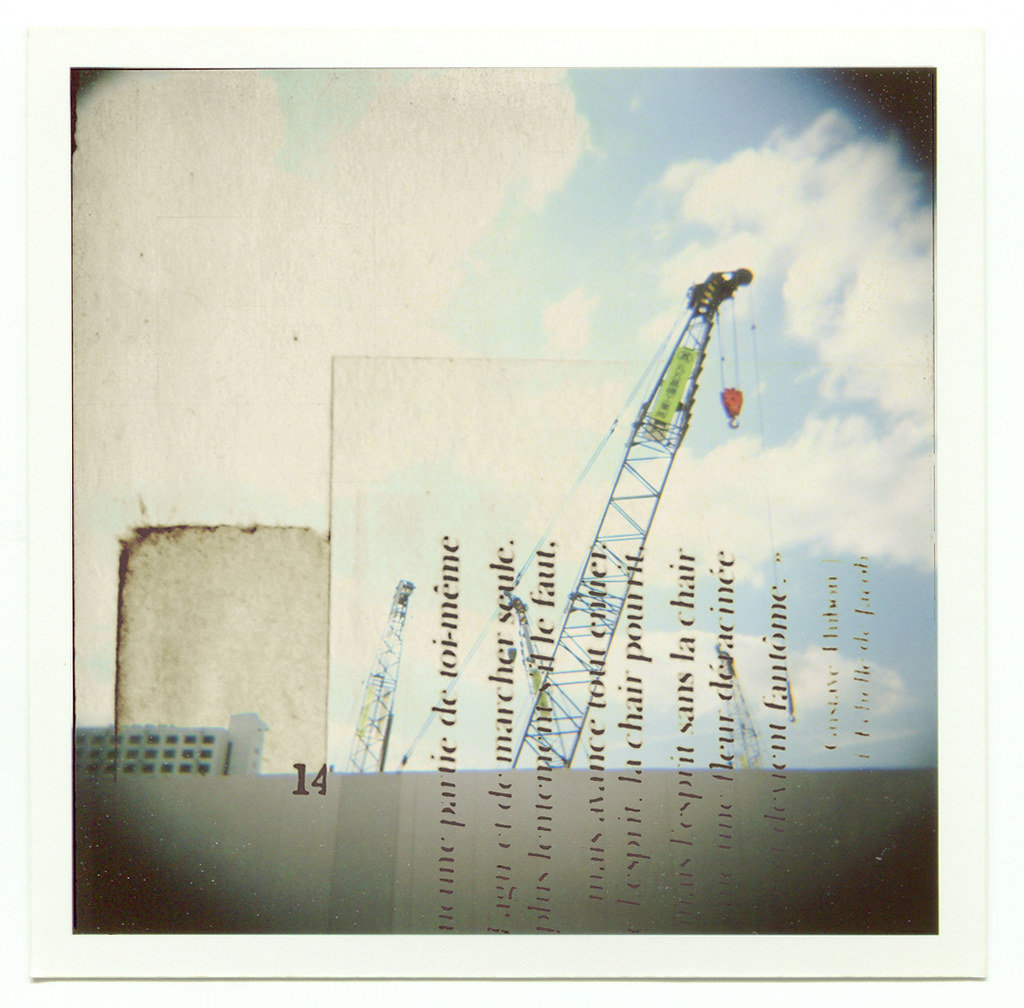
"The soil of that planet was infested with them. A baobab is something you will never, never be able to get rid of if you attend to it too late. It spreads over the entire planet. It bores clear through it with its roots. And if the planet is too small, and the baobabs are too many, they split it in pieces...": from The LIttle Prince: textured photo by Marie Wintzer, 16 October 2011
Now there were some terrible seeds on the planet that was the home of the little prince; and these were the seeds of the baobab. The soil of that planet was infested with them. A baobab is something you will never, never be able to get rid of if you attend to it too late. It spreads over the entire planet. It bores clear through it with its roots. And if the planet is too small, and the baobabs are too many, they split it in pieces...

"It is a question of discipline," the little prince said to me later on. "When you've finished your own toilet in the morning, then it is time to attend to the toilet of your planet, just so, with the greatest care. You must see to it that you pull up regularly all the baobabs, at the very first moment when they can be distinguished from the rosebushes which they resemble so closely in their earliest youth. It is very tedious work," the little prince added, "but very easy."
Grandidier's Baobabs (Adansonia grandidieri) near Morondava, Madgascar: photo by Bernard Gagnon, 14 March 2007
And one day he said to me: "You ought to make a beautiful drawing, so that the children where you live can see exactly how all this is. That would be very useful to them if they were to travel some day. Sometimes," he added, "there is no harm in putting off a piece of work until another day. But when it is a matter of baobabs, that always means a catastrophe. I knew a planet that was inhabited by a lazy man. He neglected three little bushes..."

So, as the little prince described it to me, I have made a drawing of that planet. I do not much like to take the tone of a moralist. But the danger of the baobabs is so little understood, and such considerable risks would be run by anyone who might get lost on an asteroid, that for once I am breaking through my reserve. "Children," I say plainly, "watch out for the baobabs!"
My friends, like myself, have been skirting this danger for a long time, without ever knowing it; and so it is for them that I have worked so hard over this drawing. The lesson which I pass on by this means is worth all the trouble it has cost me.
Perhaps you will ask me, "Why are there no other drawing in this book as magnificent and impressive as this drawing of the baobabs?"
The reply is simple. I have tried. But with the others I have not been successful. When I made the drawing of the baobabs I was carried beyond myself by the inspiring force of urgent necessity.
![Sunset at the Avenue of the Baobab trees 4955998343 2b4170b300 b Baobab The Upside Down Tree [25 Pics]](http://farm5.static.flickr.com/4145/4955998343_2b4170b300_b.jpg)
Sunset showing at the Avenue of the Baobab, Morondava, Madagascar: photo by copepedo, 12 August 2010
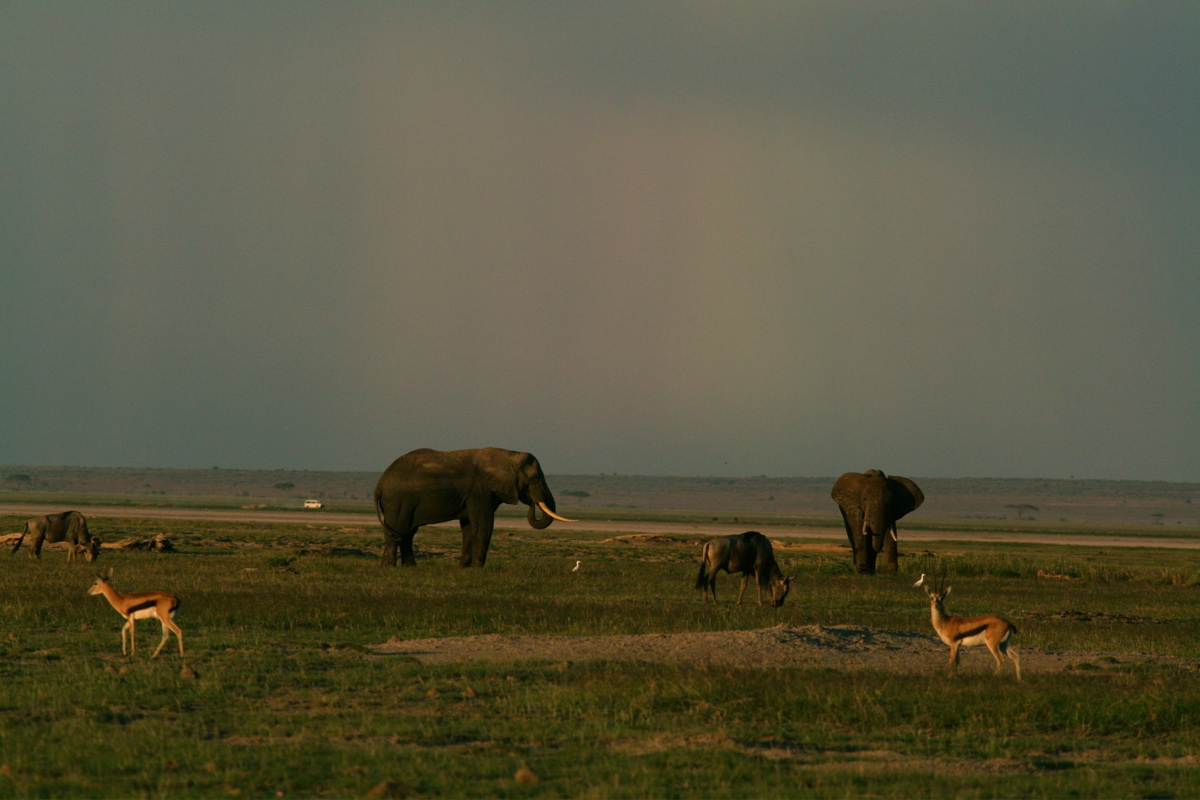
Elephant, antelope and rainbow, Rift Valley, Kenya: photo by nijaba, 31 December 2007
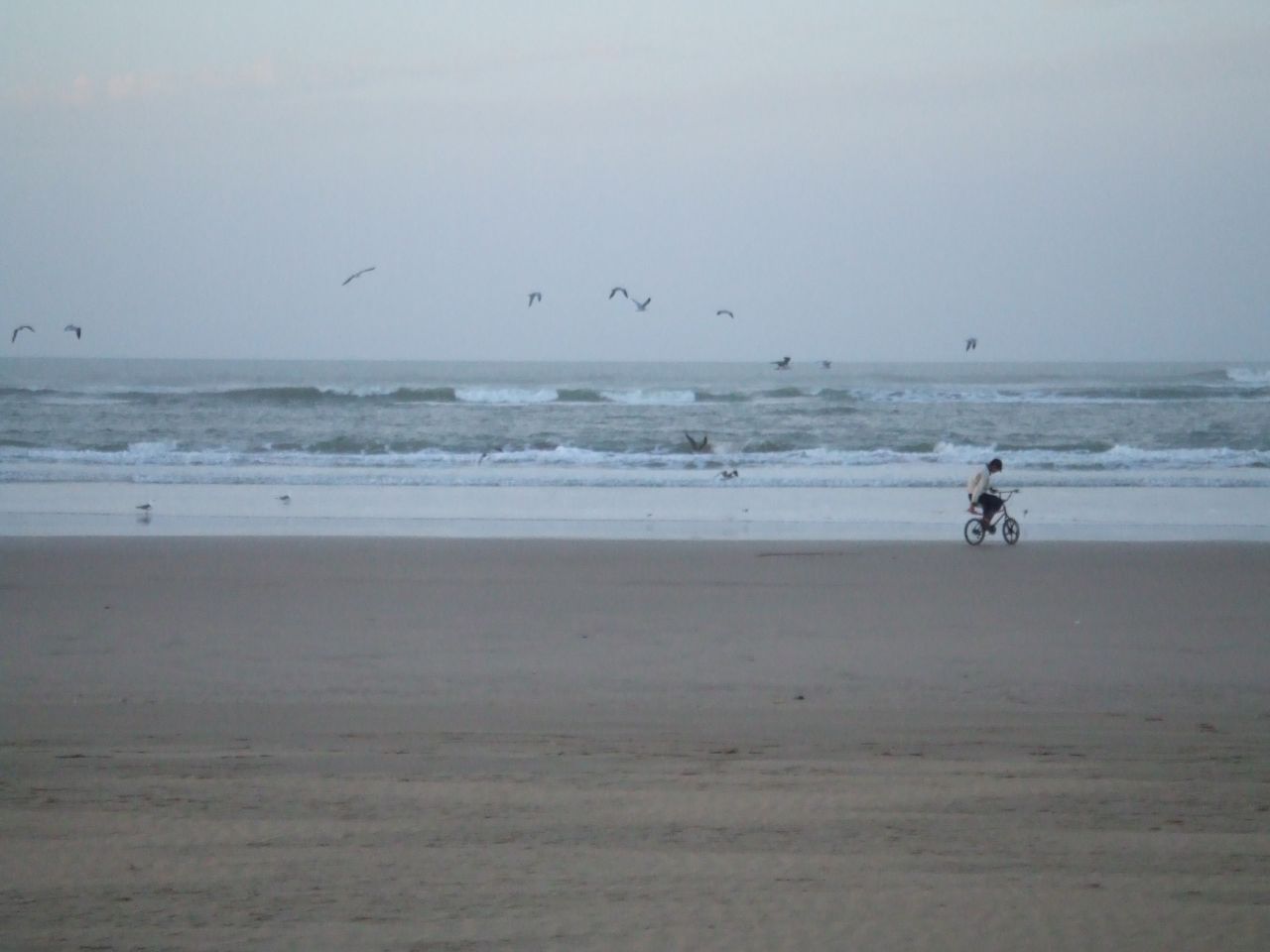
Tarfaya: photo by dimworld (Dimitri), 12 December 2007
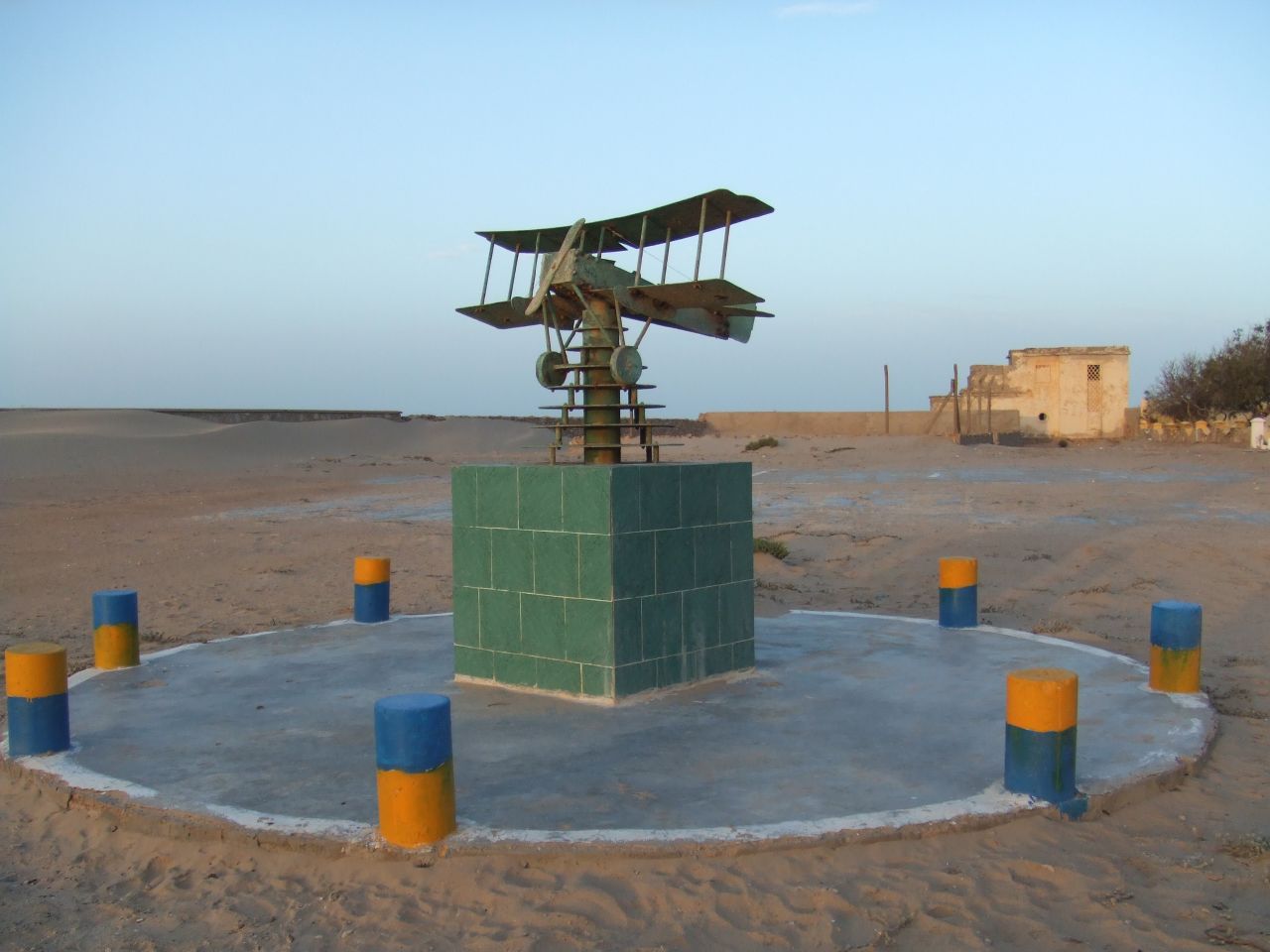
Musée Antoine de Saint-Exupéry Tarfaya, Morocco: photo by dimworld (Dimitri), 12 December 2007
Le Petit Prince (The Little Prince): Antoine de Saint Exupéry (1900-1944), 1943, excerpts from Chapter 22 and Chapter 5, with watercolour illustrations by the author



![Adansonia grandidieri, baobab from Madagascar, picture taken near Morondava Adansonia grandidieri02 Baobab The Upside Down Tree [25 Pics]](http://upload.wikimedia.org/wikipedia/commons/a/a1/Adansonia_grandidieri02.jpg)
![Adansonia grandidieri, baobab from Madagascar, picture taken near Morondava, March 14, 2007 Adansonia grandidieri03 Baobab The Upside Down Tree [25 Pics]](http://upload.wikimedia.org/wikipedia/commons/c/cb/Adansonia_grandidieri03.jpg)